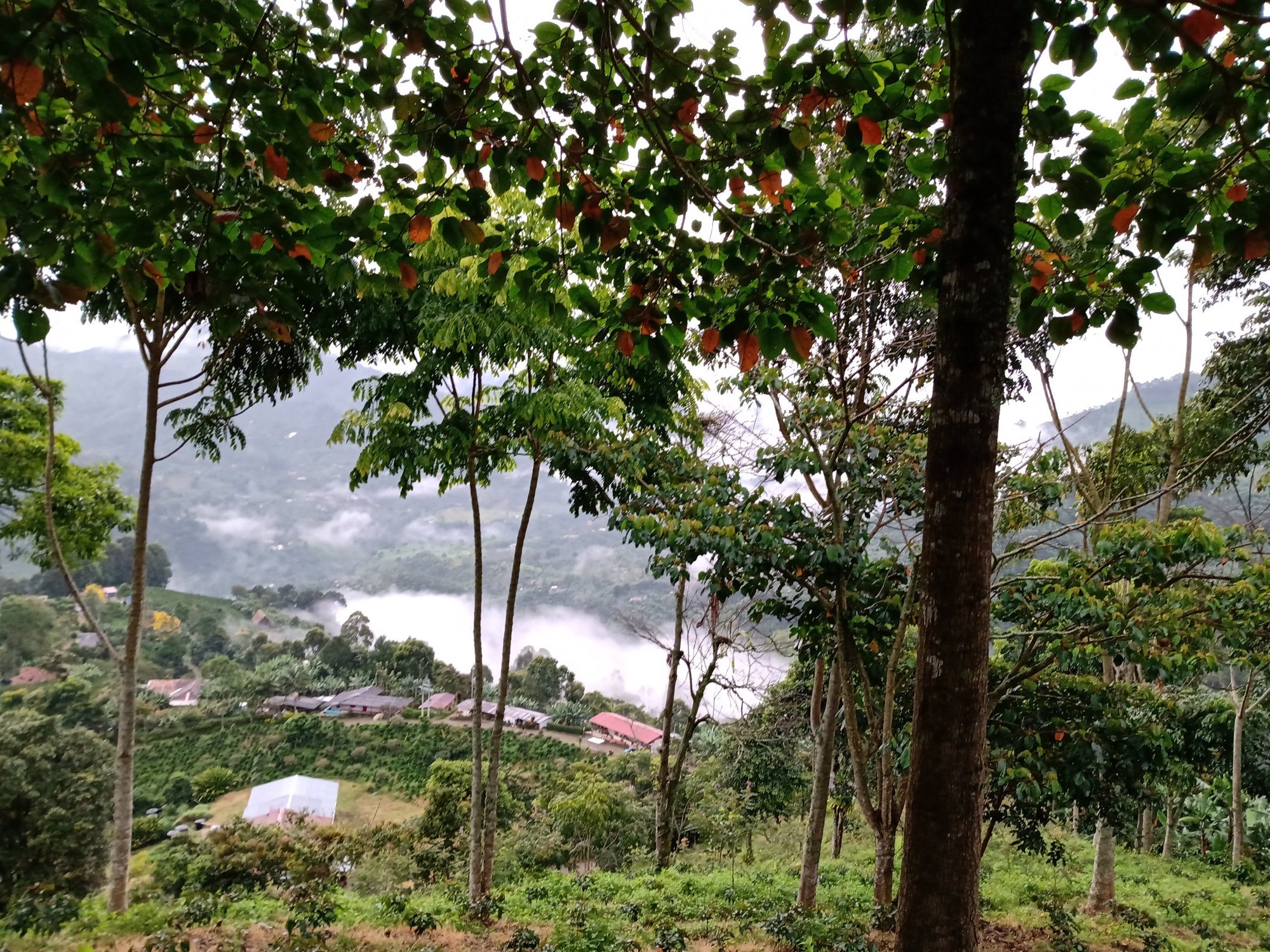
FARM : El Tesoro
REGION : Tolima
ALTITUDE : 1600 MASL
VARIETAL : Caturra
PROCESS : Honey
Yeferson Olaya owns and operates Finca El Tesoro 1600 meters above sea level in the hills of Planadas municipality in the Tolima department of Colombia, 40 km from the municipality’s capital. Yeferson comes from a coffee-producing family, with his father Nolberto operating his family farm Finca La Cinta nearby. Nolberto is recognized in the area for his commitment to protecting the environment through his farming practices, and this commitment is carried on by the whole family, including Yeferson and his farm.
Yeferson’s family stresses the importance of using onsite materials and compostables from processed food to create blends of organic materials that will act as a fertilizer, quality booster, and immunity shield for the plants. They produce and mix calcium rich ashes, mulch, and earthworms, as well as compost from coffee pulp and cane sugar molasses to create these agricultural inputs. Though the process requires lots of additional work and knowledge, this step is particularly important for them because it helps them to continue getting quality crops and good yields from all of the coffee plants.
Coffee cherries from El Tesoro are taken for processing at the nearby Finca La Cinta, which is outfitted with processing equipment and infrastructure to dry coffee, along with a quality control lab which contains a one-barrel sample roaster, a mobile stove, and cupping gear. Yeferson is a CQI Q Grader and assists his father with onsite quality control and feedback on post-harvest processes for all coffees processed at La Cinta.
This lot of Caturra from El Tesoro underwent Honey processing at La Cinta. Cherries are sorted in floating tanks to select only dense ripe fruit. The cherries are fermented whole in plastic tanks for 48 hours of aerobic fermentation. The fruit is then pulped and placed back into the tanks and sealed for 48 hours of anaerobic fermentation. The coffee is then rinsed and moved to the greenhouse drying area where it is dried for 20–25 days.
As the fourth largest country in South America, and the third largest coffee producer in the world, there is no mistaking Colombia’s presence in not only scale, but also skill. The country offers a landscape of contrasts; mountains, forests, coastlines, and micro-climates that work to produce some of the world’s most recognisable coffee.

Once the world’s largest producer of washed coffees, Colombia has had to re-energise the coffee sector after a 2009 case of Leaf Rust decimate much of the production. Thanks to large investment, disease resistant varietals of coffee trees have been planted, and volume has increased from a low of around 7.5million bags to over 12 million in 5 years. Colombia used to produce only washed Arabica coffee, from three main geographical areas trisected by the Andes mountain range. Regional coffees have become increasingly popular and are demonstrable of the distinct flavour profiles available throughout the nation. Coffees are typically mild bodied (hence the categorising term ‘Colombia Milds’), with crisp acidity and citric sweetness.
Your cart is currently empty.